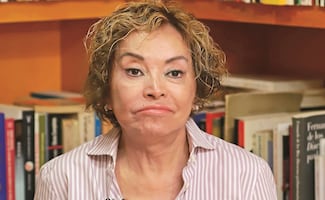Más Información

Senado alista debate sobre "pensiones doradas"; van por acuerdo para toparlas en 70 mil pesos mensuales

Estos son los nuevos lineamientos que deben cumplir Ticketmaster y boleteras en conciertos masivos; DOF publica obligaciones

Secretaría de Marina realiza operativo terrestre y aéreo en la sierra de Badiraguato y Mocorito, Sinaloa; reportan disparos y persecuciones
On January 30 , the World Health Organization declared the novel coronavirus outbreak as an international emergency and on March 11, the WHO declared the global COVID-19 outbreak a pandemic .
This new disease that originated in Wuhan, China by late 2019, is currently having a significant impact worldwide and given its recent origin, scientists and doctors are still performing the corresponding research to develop a vaccine against it.

In order to prevent COVID-19 , it is of utmost importance to have information from reliable sources , such as the WHO, that is monitoring the outbreak and how it is affecting people all over the world.
One of the most important measures to face COVID-19 is not to spread rumors , so here are some of the most common myths to fight misinformation.
Recommended: COVID-19: The coronavirus epidemic will last at least 3 months in Mexico
MYTH: COVID-19 can only be transmitted in some areas
FACT: COVID-19 can be transmitted in all areas, regardless of the climate. The best way to protect yourself against COVID-19 is by frequently washing your hands and avoiding touching your eyes, mouth, and nose.

MYTH: Cold weather kills COVID-19
FACT: There is no reason to believe that cold weather can kill the new coronavirus or other diseases. The normal human body temperature remains around 36.5°C to 37°C, regardless of the external temperature or weather.

Recommended: How to boost your immune system
MYTH: Hot baths prevent the new coronavirus disease
FACT: Taking a hot bath will not prevent you from catching COVID-19. Your normal body temperature remains around 36.5°C to 37°C, regardless of the temperature of your bath or shower. Actually, taking a hot bath with extremely hot water can be harmful, as it can burn you.

MYTH: Mosquito bites transmit COVID-19
FACT: To date, there has been no information nor evidence to suggest that the new coronavirus could be transmitted by mosquitoes. The new coronavirus is a respiratory virus which spreads primarily through droplets generated when an infected person coughs or sneezes, or through droplets of saliva or discharge from the nose.

MYTH: Hand dryers can kill the new coronavirus
FACT: Hand dryers are not effective in killing the 2019-nCoV. To protect yourself against the new coronavirus, you should frequently wash your hands with an alcohol-based hand rub or wash them with soap and water. Once your hands are clean, you should dry them thoroughly by using paper towels or a warm air dryer.

MYTH: Ultraviolet disinfection lamps kill COVID-19
FACT: UV lamps should not be used to sterilize hands or other areas of skin as UV radiation can cause skin irritation.

Recommended: COVID-19: How to prevent coronavirus?
MYTH: Thermal scanners can detect people infected with the new coronavirus
FACT: Thermal scanners are effective in detecting people who have developed a fever because of infection with the new coronavirus. However, they cannot detect people who are infected but are not yet sick with a fever. This is because it takes between 2 and 10 days before people who are infected become sick and develop a fever.

MYTH: Spraying alcohol or chlorine all over your body kills COVID-19
FACT: Spraying alcohol or chlorine all over your body will not kill viruses that have already entered your body. Although they can be useful to disinfect surfaces, spraying such substances can be harmful to clothes or mucous membranes (i.e. eyes, mouth).

MYTH: Vaccines against pneumonia protect you against the new coronavirus
FACT: Vaccines against pneumonia, such as pneumococcal vaccine and Haemophilus influenza type B (Hib) vaccine, do not provide protection against the new coronavirus. The virus is so new and different that it needs its own vaccine. Researchers are trying to develop a vaccine against 2019-nCoV, and WHO is supporting their efforts.
Although these vaccines are not effective against 2019-nCoV, vaccination against respiratory illnesses is highly recommended to protect your health.

MYTH: Regularly rinsing your nose with saline helps prevent COVID-19
FACT: There is no evidence that regularly rinsing the nose with saline has protected people from infection with the new coronavirus.
There is some limited evidence that regularly rinsing their nose with saline can help people recover more quickly from the common cold. However, regularly rinsing the nose has not been shown to prevent respiratory infections.

Recommended: COVID-19 FAQs
MYTH: Eating garlic prevents the new coronavirus
FACT: Garlic is a healthy food that may have some antimicrobial properties. However, there is no evidence from the current outbreak that eating garlic has protected people from the new coronavirus.

MYTH: COVID-19 only affects older people
FACT: People of all ages can be infected by the new coronavirus (2019-nCoV). Older people and people with pre-existing medical conditions (such as asthma, diabetes, heart disease) appear to be more vulnerable to becoming severely ill with the virus.

MYTH: Antibiotic can prevent and treat the new coronavirus
FACT: Antibiotics do not work against viruses, only bacteria. The new coronavirus (2019-nCoV) is a virus and, therefore, antibiotics should not be used as a means of prevention or treatment. However, if you are hospitalized for the 2019-nCoV, you may receive antibiotics because bacterial co-infection is possible.

Recommended: Mexican authorities are tracking hundreds of possible COVID-19 carriers
mp
Noticias según tus intereses
[Publicidad]
[Publicidad]











